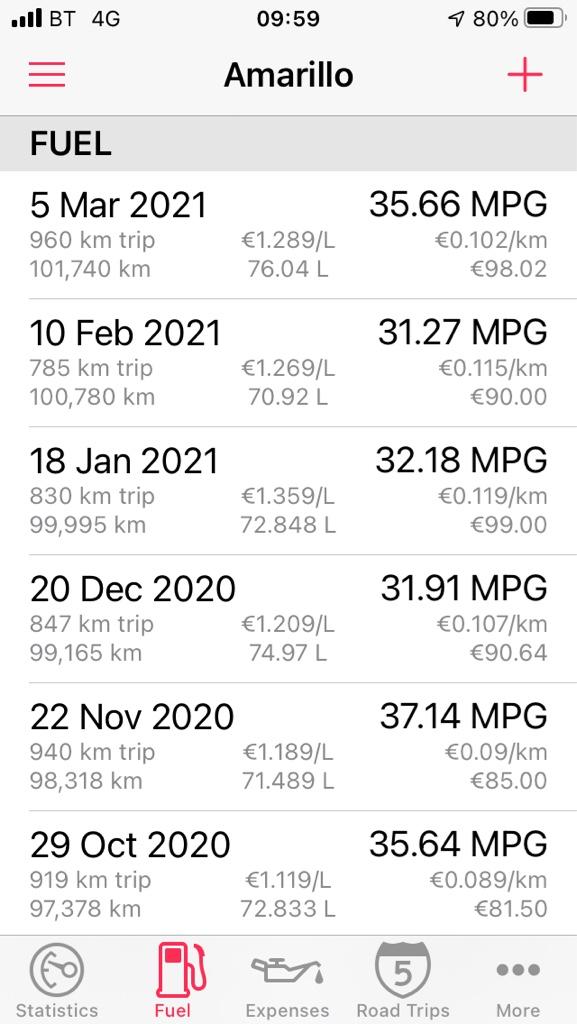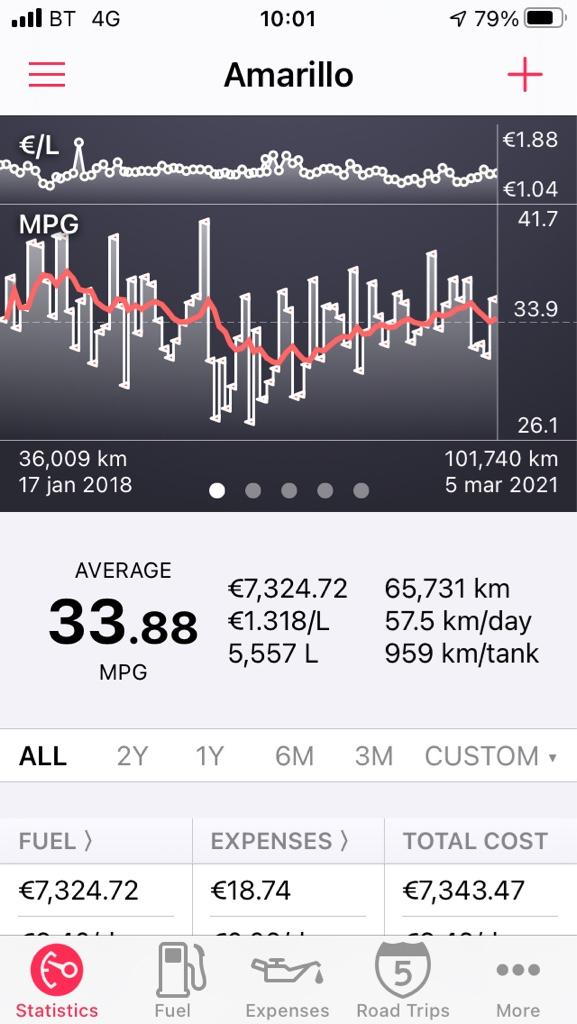Regarding the coasting function : does anyone have any views on long term real world efficiency particularly when coupled with other events such as DPF regen frequency with / without Coasting function turned on / off.
we know the DPF regen uses more fuel whilst the regen is running, during Regen fuel pressure is increased to aid cooling, the excess fuel being returned to the tank, during Regen the engine runs hotter and idle revs are higher, add blue consumption increases massively.
The coasting function disengages the engine / transmission allowing the engine to free wheel, albeit at an idle speed and could offer a perceived fuel saving benefit amounting to a couple of miles per gallon,
however when the engine idles it potentially creates more carbon deposits throughout the system (DPF, Catalytic converter, EGR etc). As the exhaust pressure and temperature throughout the system is reduced and therefore the idling effect could potentially affect other efficiencies of the power plant, including turbo usage.
I can see that there is potentially an upside to Coasting but are there any negatives ?
and at what point does the positive become a potential negative Coupled with potential issues such as DPF, blocked / reduced EGR tube capacity / turbo usage etc.
in an attempt to try to understand some of these questions I switched my coasting function off, the van is only being used for relatively short trips 10 - 20 miles Average. (for obvious reasons)
in that time I have noticed less frequent regens over a 2000 mile interval (notional experience), the add blue usage seems to have reduced significantly (add blue monitored via MFD vs experience of the lifetime of the vehicle usage so far: actual usage)
is the coasting function one of those tools employed by manufacturers to attain Economy figures on a brand new engine (similar to EGR system) across the spectrum of the test criteria?
does any perceived benefit out weigh long term performance over real world driving ?
would the coasting function be as effective as non coasting in all real world situations ? (particularly when measured across an extended period of real world driving environments and other contributing factors, as opposed to test environment measuring only limited factors)
and considering other factors such as Regen frequency, EGR efficiency degradation, engine oil contamination, optimal engine operating temperature, fuel economy vs actual real world emissions (not just those coming out of the exhaust during a limited test environment etc?
Whilst coasting the alternator increases charge to the batteries (charging of starter Battery etc) for very short burst, but with coasting switched off the alternator charges the batteries at a higher voltage, far more efficiently and for longer periods of time. ( I have monitored this over the same period and have experienced generally better holding voltage of the starter battery for longer periods of time with less driving / time on hook up)
is there a benefit to either only using coasting on long runs / short runs or not at all on a fully “run in“ engine?
IMO it’s a little like the start stop function, yes it can be proven to reduce emissions in a test environment when applied to a certain set of critera, but does it actually provide an across the board benefit in real world situations like it is purportedly meant to be doing When compared to other factors such as wear and tear, increased cycling of other real time events etc, which themselves can have cause and effect on the very thing they are meant to be improving ?
your thoughts?
@bob_summers
you do prompt some good debates


















